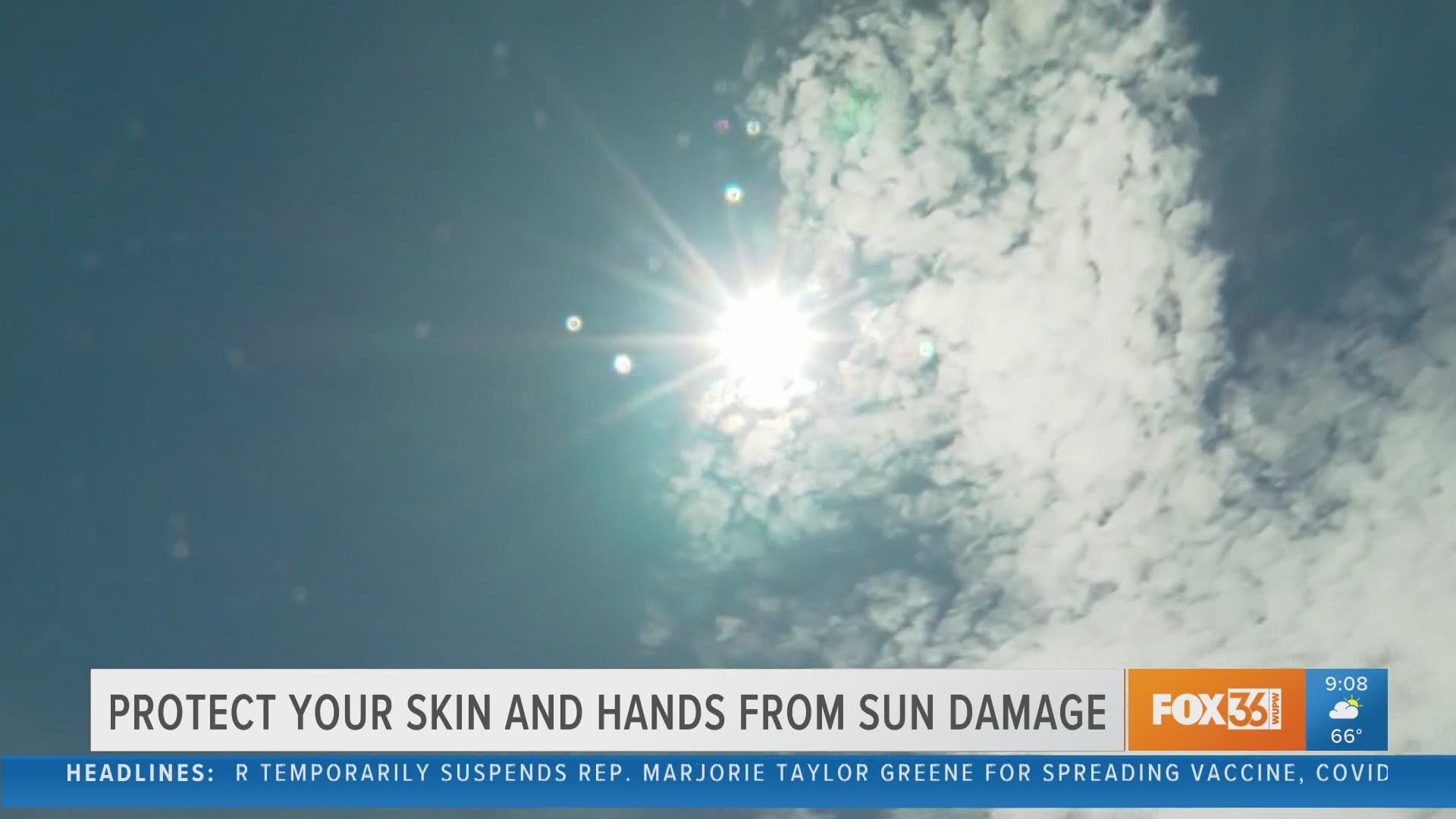PERRYSBURG, Ohio — Protecting your skin from the sun's harmful ultraviolet rays is always important, but even more so in the summer months.
Studies show that UV levels are highest in July and August, so making sure sunscreen is part of your daily routine is very important.
We all want to spend time outside in the summer, and that's a great way to be physically active, reduce stress and get vitamin D. But the sun's rays can be very harmful without the shield of sunscreen.
Sunscreen does more than protect your skin from getting burned; it also prevents skin cancer and aging as well.
The CDC says nearly 5 million people in the United States are treated for skin cancer each year. However, most cases of skin cancer can be prevented with the proper use of sunscreen.
And the sun isn't your only risk of getting skin cancer; tanning beds and sun lamps are, too.
Nurses at Blush Aesthetics Medical Spa in Perrysburg say skin cancer is caused by too much exposure to UV rays, which is the invisible radiation that comes from the sun, tanning beds and sun lamps. UV rays can damage skin cells, especially if you have prolonged exposure to them.
The best way to protect your skin is to avoid tanning beds and apply sunscreen. Look for a broad spectrum sunscreen that blocks both UVA (associated with skin aging) and UVB (associated with skin burning) rays.
Sunscreens are assigned a Sun Protection Factor, or SPF, which is the number that indicates how well they block UV rays. Higher numbers mean more protection for your skin.
An easy way to know how much UV exposure you're going to get when you go outside is by using The Shadow Rule from the EPA: If your shadow is taller than you are (in the early morning and late afternoon), your UV exposure is likely to be lower. If your shadow is shorter than you are (around midday), you are being exposed to higher levels of UV radiation.
Remember to always check the expiration date on your sunscreen to make sure it will still protect you; sunscreen without an expiration date has a shelf life of no more than three years.
Some sunscreens also wear off if you're out in the sun for more than two hours, so it's important to reapply if you're going to be outside for a long period of time, especially if you're sweating or swimming.

